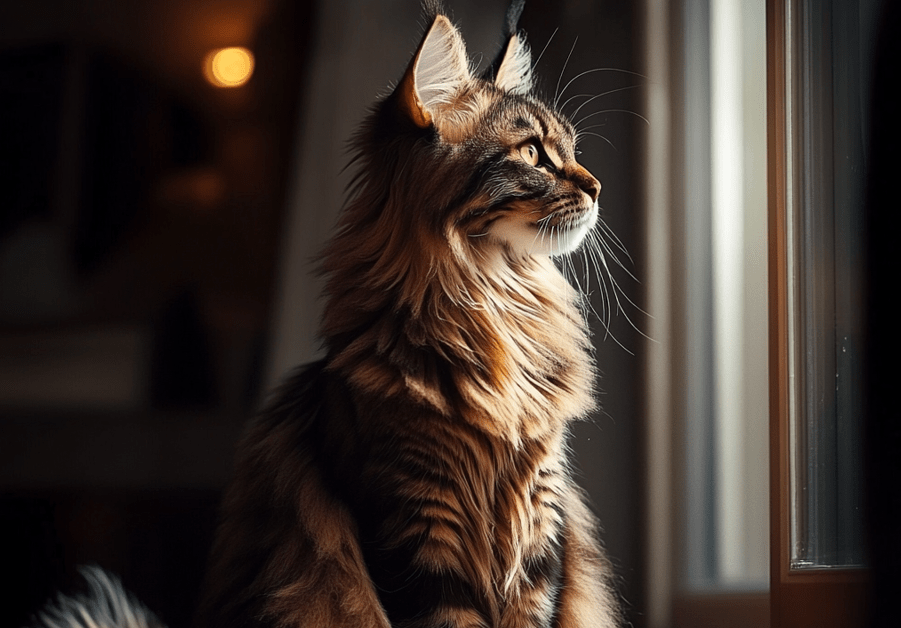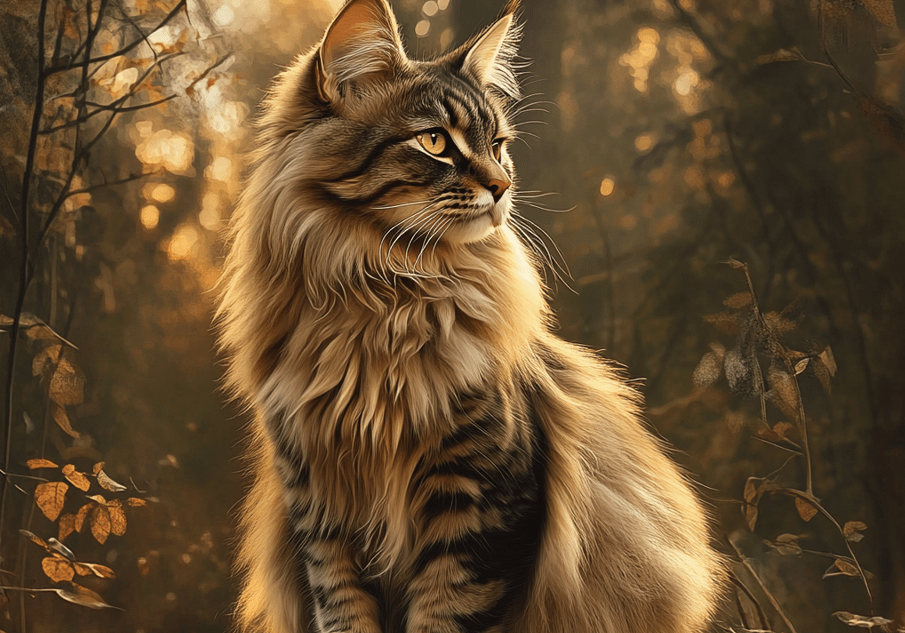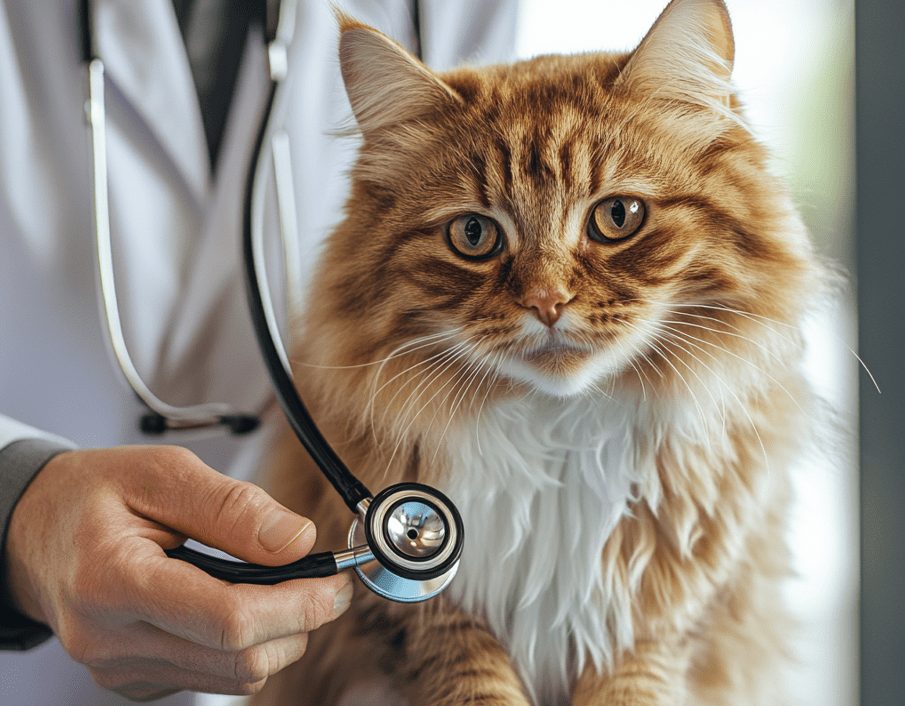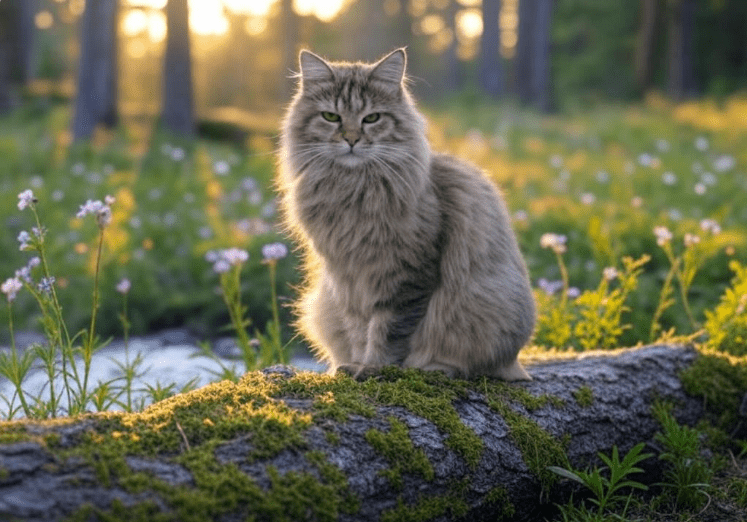
Maine Coons, known for their large size, friendly demeanor, and dog-like loyalty, are typically outgoing and social cats. However, even these gentle giants may exhibit unexpected behaviors, such as Maine Coon hiding. If your Maine Coon is suddenly retreating to secluded spots, it could signal stress, illness, or a natural instinct. This comprehensive guide, updated for 2025, explores the reasons behind Maine Coon hiding, how to interpret their behavior, and actionable steps to help your cat feel safe and secure. By understanding their needs, you can strengthen your bond and ensure their well-being.
Why Do Maine Coons Hide?
Hiding is a common feline behavior rooted in instinct, but Maine Coons may hide for specific reasons due to their unique traits. Maine Coon hiding can stem from environmental changes, health issues, stress, or simply their personality. Unlike smaller breeds, Maine Coons’ large size and thick fur make them seek cool, quiet spaces, while their intelligence and sensitivity amplify their response to disruptions. Identifying the cause is the first step to addressing this behavior.
Common Reasons for Maine Coon Hiding
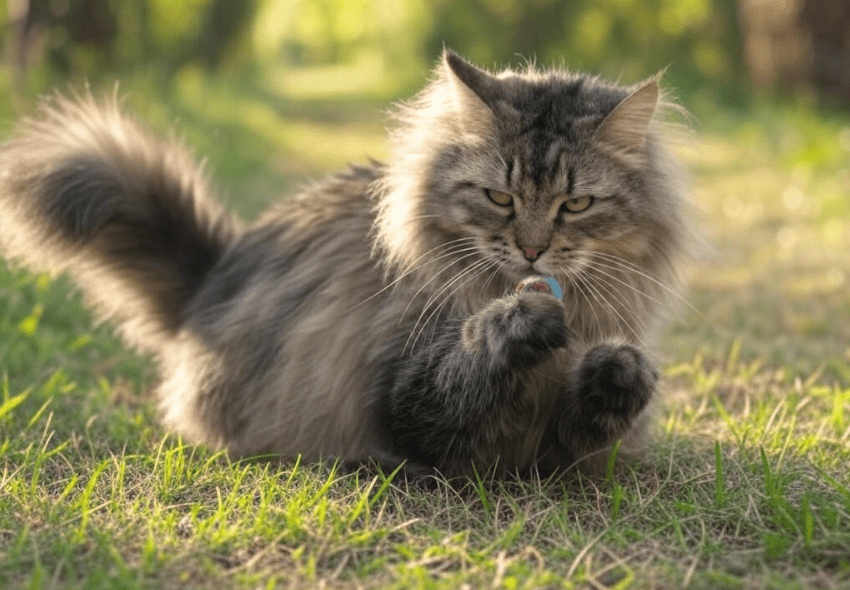
Here are the primary reasons your Maine Coon may be hiding, along with insights into their motivations:
1. Stress or Anxiety
Maine Coons are sensitive to changes in their environment, and stress can trigger hiding. Common stressors include:
Household Changes: Moving, new furniture, or renovations can unsettle your cat.
New Pets or People: Introducing a new pet, baby, or visitor may make your Maine Coon feel threatened.
Loud Noises: Fireworks, thunderstorms, or construction noises can drive them to seek safety.
Routine Disruptions: Changes in feeding or play schedules can cause unease.
Signs of Stress: Hiding, reduced appetite, excessive grooming, or aggression.
2. Health Issues
Hiding is often a sign that your Maine Coon is unwell or in pain. Cats instinctively hide to protect themselves when vulnerable. Potential health-related causes include:
Dental Problems: Maine Coons are prone to dental disease, which can cause discomfort.
Arthritis: Older Maine Coons may hide due to joint pain, especially if climbing or jumping is difficult.
Digestive Issues: Constipation or urinary tract infections can lead to discomfort and hiding.
Injuries: Minor injuries, like a sore paw, may prompt your cat to retreat.
Signs of Illness: Lethargy, vomiting, changes in litter box habits, or weight loss.
3. Natural Instincts
Hiding is a survival mechanism for cats, even in safe environments. Maine Coons may hide to:
Feel Secure: Small, enclosed spaces mimic safe dens in the wild.
Regulate Temperature: Their thick fur makes them seek cool spots, like under furniture or in closets.
Observe Quietly: Maine Coons’ curious nature may lead them to watch their surroundings from a hidden vantage point.
Signs of Instinctual Hiding: Normal appetite, playfulness, and no other behavioral changes.
4. Territorial Behavior
Maine Coons can be territorial, and hiding may indicate they feel their space is being invaded. This is common in multi-pet households or when new items (e.g., a new cat tree) are introduced.
Signs of Territorial Hiding: Hissings, swatting, or marking near their hiding spot.
5. Pregnancy or Hormonal Changes
Unspayed female Maine Coons may hide when pregnant or in heat, seeking a safe place to nest. Similarly, unneutered males may hide due to hormonal restlessness.
Signs of Hormonal Behavior: Vocalizing, restlessness, or spraying.
6. Personality Traits
Some Maine Coons are naturally shy or introverted, especially if adopted from stressful environments. These cats may hide until they feel fully comfortable.
Signs of Shy Personality: Gradual improvement in sociability with time and trust-building.
How to Identify the Cause of Maine Coon Hiding
To address Maine Coon hiding, you need to pinpoint the cause. Follow these steps:
Observe Behavior: Note when and where your cat hides. Is it after specific events (e.g., loud noises) or consistently throughout the day?
Check for Health Issues: Monitor for signs of illness, such as changes in eating, drinking, or litter box habits. Feel for lumps, injuries, or sensitive areas (gently, to avoid stress).
Assess the Environment: Look for recent changes, like new pets, rearranged furniture, or noisy appliances.
Evaluate Stress Levels: Consider if your Maine Coon seems anxious or if their routine has been disrupted.
Consult a Vet: If hiding persists for more than 48 hours or is accompanied by other symptoms, schedule a veterinary exam to rule out medical issues.
What to Do When Your Maine Coon Is Hiding
Once you’ve identified the likely cause of Maine Coon hiding, take these steps to help your cat feel safe and confident:
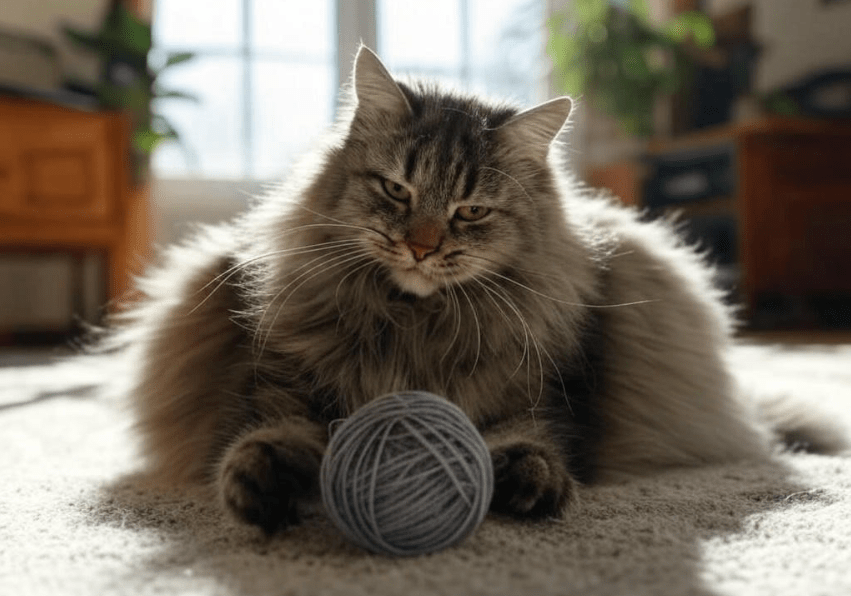
1. Create a Safe Environment
Maine Coons need secure, comfortable spaces to retreat to without feeling trapped. Try these tips:
Provide Safe Hiding Spots: Offer cat-specific hiding places, like a cozy cat cave (e.g., Petstages Cat Cave) or a cardboard box with soft bedding.
Minimize Stressors: Reduce loud noises, keep routines consistent, and introduce changes gradually.
Use Pheromones: Feliway diffusers or sprays mimic calming feline pheromones, reducing anxiety in stressful environments.
2. Encourage Gradual Socialization
If your Maine Coon is hiding due to shyness or stress, build their confidence slowly:
Avoid Forcing Interaction: Let your cat approach you on their terms. Never pull them out of a hiding spot, as this can increase fear.
Use Treats and Toys: Lure them out with high-value treats (e.g., freeze-dried chicken) or interactive toys like feather wands.
Spend Quiet Time Nearby: Sit near their hiding spot, reading or speaking softly, to help them associate your presence with safety.
3. Address Health Concerns
If you suspect illness, act promptly:
Schedule a Vet Visit: A thorough exam, including bloodwork or X-rays, can identify issues like dental disease or arthritis.
Monitor Symptoms: Keep a log of your cat’s eating, drinking, and litter box habits to share with your vet.
Follow Treatment Plans: Administer prescribed medications or dietary changes as directed to alleviate discomfort.
4. Enhance Environmental Enrichment
Boredom or lack of stimulation can contribute to Maine Coon hiding. Enrich their environment with:
Cat Trees and Perches: Tall, sturdy cat trees (e.g., Armarkat Cat Tree) allow Maine Coons to climb and observe from a safe height.
Interactive Toys: Puzzle feeders, like the Trixie Activity Fun Board, engage their intelligence and reduce stress.
Playtime: Schedule 15–20 minutes of daily play with feather wands or laser pointers to boost their confidence and energy.
5. Manage Territorial Issues
If hiding is linked to territorial stress:
Introduce New Pets Gradually: Use scent swapping and separate spaces to ease introductions.
Provide Multiple Resources: Ensure each cat has their own litter box, food bowl, and hiding spot to reduce competition.
Reinforce Positive Behavior: Reward your Maine Coon with treats for calm interactions with other pets or people.
6. Support Hormonal or Pregnant Cats
For unspayed or unneutered Maine Coons:
Spay or Neuter: This reduces hormonal behaviors and prevents health risks. Consult your vet for timing, especially for pregnant cats.
Create a Nesting Area: Provide a quiet, private space with soft bedding for pregnant females to feel secure.
Preventing Maine Coon Hiding
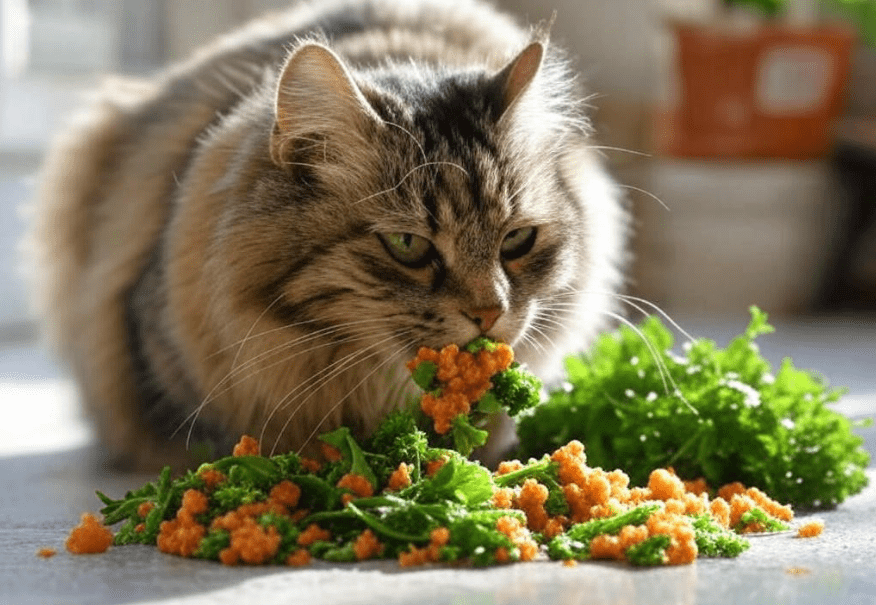
Proactive care can minimize Maine Coon hiding and promote a confident, happy cat. Incorporate these habits:
1. Maintain a Consistent Routine
Maine Coons thrive on predictability. Feed, play, and clean litter boxes at the same times daily to reduce stress.
2. Regular Veterinary Checkups
Annual exams (twice yearly for seniors) catch health issues early. Discuss any behavioral changes, like hiding, with your vet.
3. Provide Ample Enrichment
Keep your Maine Coon mentally and physically stimulated with:
1.Rotating toys to maintain novelty.
2.Window perches for bird-watching.
3.Scratching posts to satisfy their clawing instincts.
4. Monitor Household Changes
Introduce new pets, people, or furniture gradually. Use pheromone diffusers during transitions to ease anxiety.
5. Grooming and Comfort
Maine Coons’ thick fur requires regular brushing to prevent matting, which can cause discomfort and prompt hiding. Brush 2–3 times weekly with a deshedding tool.
Special Considerations for Maine Coons
Maine Coons’ unique traits influence their hiding behavior:
Size: Their large bodies need spacious hiding spots and litter boxes to feel comfortable.
Sensitivity: Their intelligence makes them more reactive to environmental changes, requiring extra patience during transitions.
Age: Senior Maine Coons (8+ years) may hide due to arthritis or cognitive decline, while kittens may hide out of shyness.
Social Nature: Maine Coons crave interaction, so excessive hiding may indicate unmet social needs.
Common Mistakes to Avoid
When addressing Maine Coon hiding, steer clear of these errors:
Ignoring Symptoms: Hiding for more than a day or two may signal a problem. Don’t assume it’s “just a phase.”
Punishing Hiding: Scolding or forcing your cat out can increase fear and damage trust.
Overlooking Health Issues: Always rule out medical causes before attributing hiding to behavior.
Neglecting Enrichment: A lack of stimulation can lead to boredom and stress, prompting hiding.
Rushing Socialization: Pushing a shy Maine Coon too quickly can make them retreat further.
When to Seek Professional Help
Contact your veterinarian or a feline behaviorist if:
1.Hiding persists for more than 48 hours with no clear cause.
2.Your Maine Coon shows signs of illness (e.g., vomiting, lethargy, or refusing food).
3.Behavioral changes, like aggression or excessive vocalizing, accompany hiding.
4.Stress or territorial issues don’t improve with home interventions.
A vet can diagnose medical issues, while a behaviorist can develop a tailored plan for anxiety or territorial problems.
Conclusion
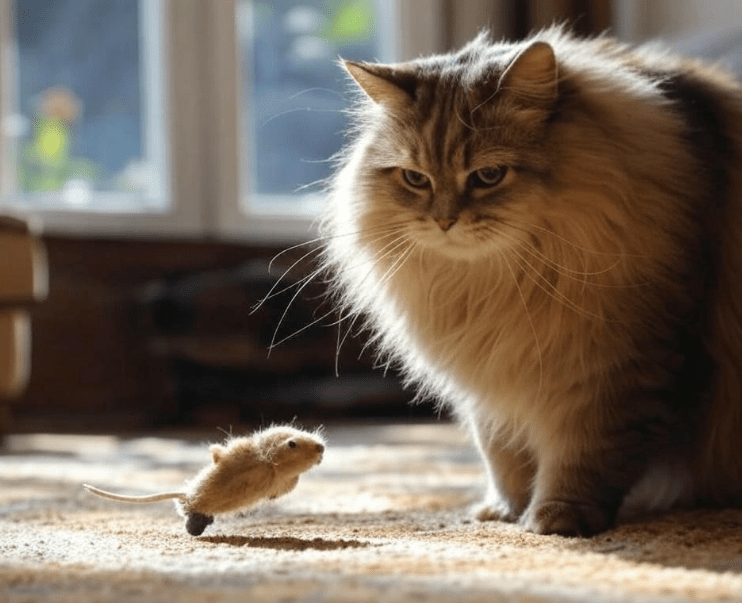
Understanding why your Maine Coon is hiding is key to addressing their needs and ensuring their happiness. Whether driven by stress, illness, instincts, or personality, Maine Coon hiding is a signal to pay attention. By creating a safe environment, addressing health concerns, and providing enrichment, you can help your gentle giant feel secure and confident.
This 2025 guide equips you with the tools to interpret and respond to Maine Coon hiding, from practical tips to veterinary advice. With patience and care, you’ll strengthen your bond and help your Maine Coon thrive in a loving, supportive home.

